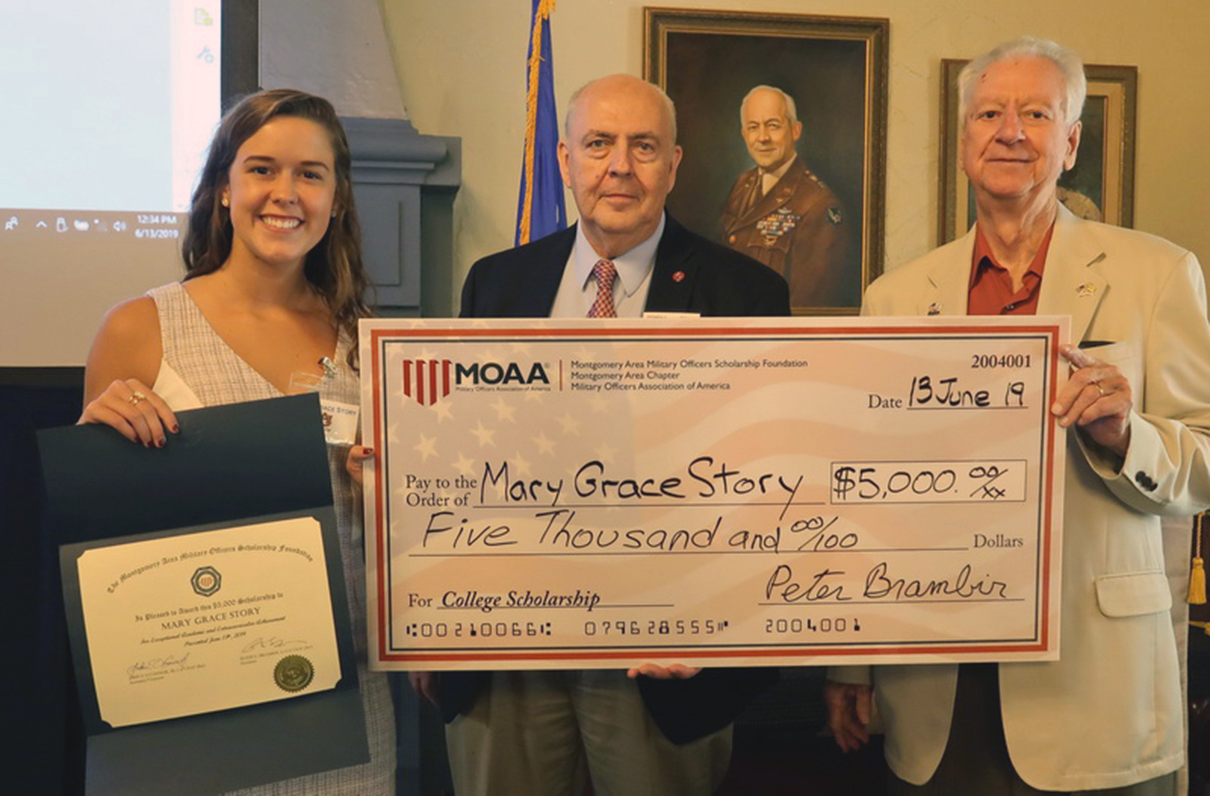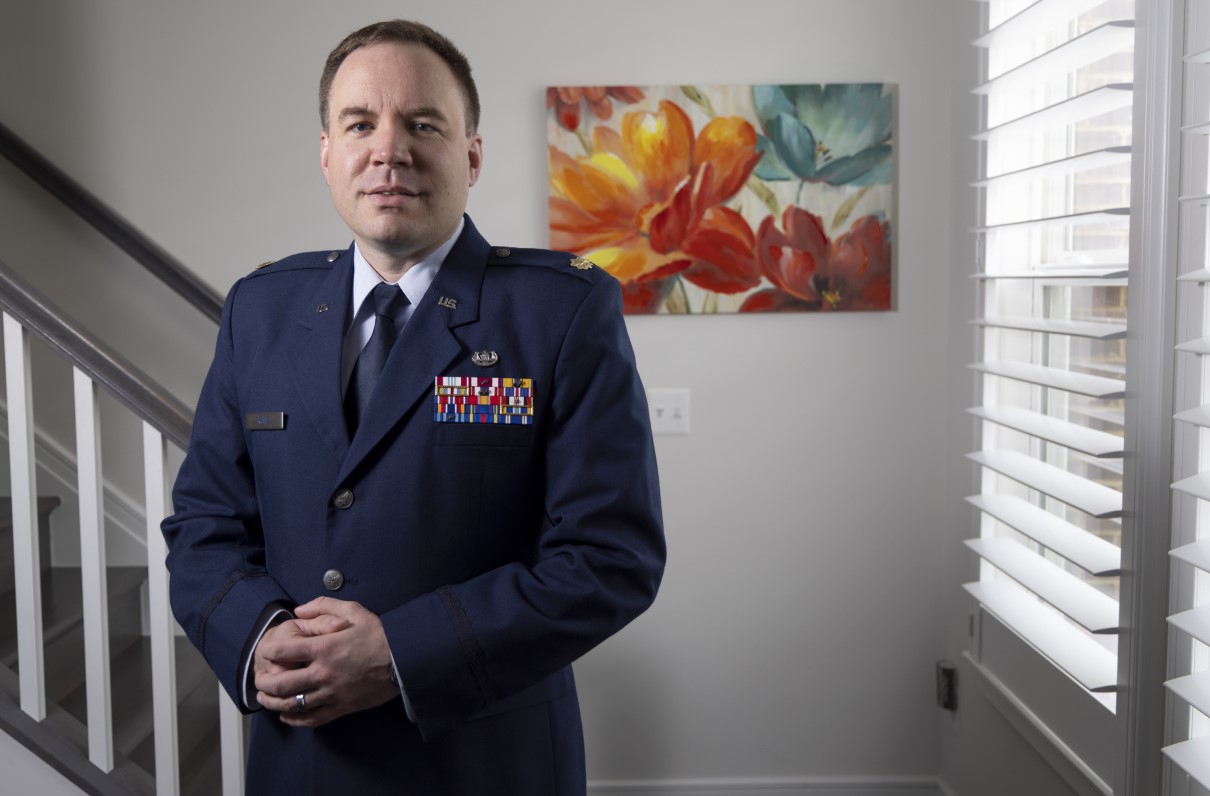By Contributing Editor Blair Drake
Since 1991, the Montgomery Area (Ala.) Chapter, through its scholarship foundation, has awarded over $300,000 in grants to local college-bound high school seniors.
The chapter hosts an annual golf tournament that raises thousands of dollars for the scholarship program.
Col. John O’Connor, USAF (Ret), chapter secretary treasurer, said the community has been very supportive of the event: “We have regular corporate sponsors that have been very generous. Additionally, the vast majority of the golfers are not members of the chapter; they’re people from the community.”
That money will be divided into several grants and awarded to deserving college-bound high school seniors from a pool of 33 competitive applicants.
According to O’Connor, the chapter distributes the scholarship application each December to more than 40 local schools — public, private, and a homeschool association. But instead of printing the application, the chapter sends posters to the schools with a QR code that students can scan to access the application.
[RELATED: Learn More About MOAA's Council and Chapter System]
Once applications are received in February, the chapter works with a professor at nearby Air University, who scores and ranks the applicants based on a set of criteria.
“We’re looking for well-rounded students,” O’Connor explained. “Not someone who just has top grades, but someone who is involved in extracurriculars, sports, and volunteer activities.”
The chapter board then determines the budget, takes the ranking, and decides the number and amount of grants.
Recipients are honored at the chapter’s scholarship award ceremony in June, where chapter members host the students and their parents and school principals. The grants are sent directly to the students’ college.
O’Connor said that in addition to helping students pay for the cost of education, he hopes the chapter’s scholarship program is exposing younger generations to the military. “Even though this is a military community, you see fewer and fewer families with a military connection,” he said. “Growing up, every one of my friend’s fathers had served. You look at the applications [for scholarships] now, and more and more you’re seeing, if anyone, grandfathers — not fathers. Hopefully the scholarship program and attending the awards dinner opens their eyes to [the military].”


